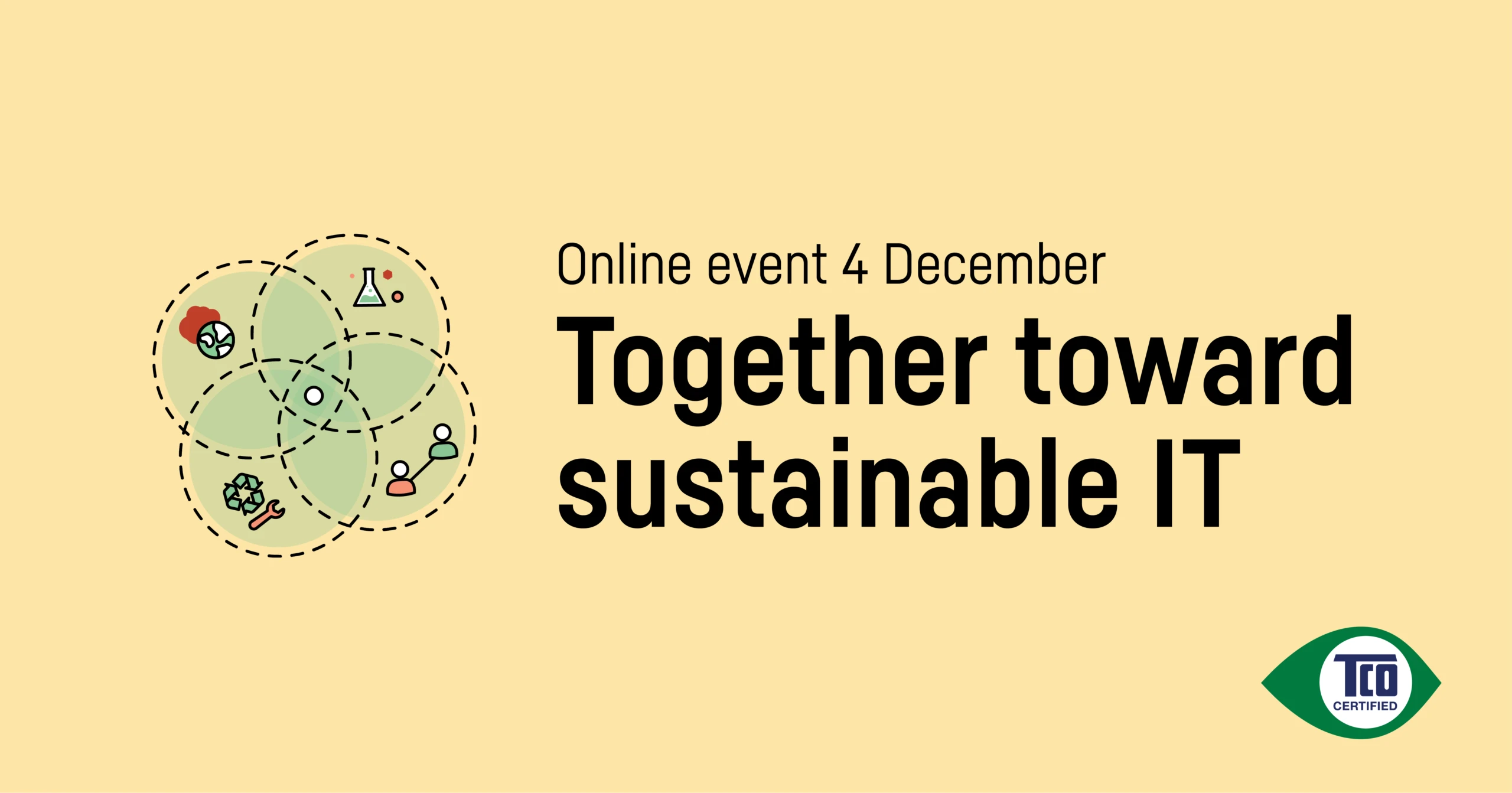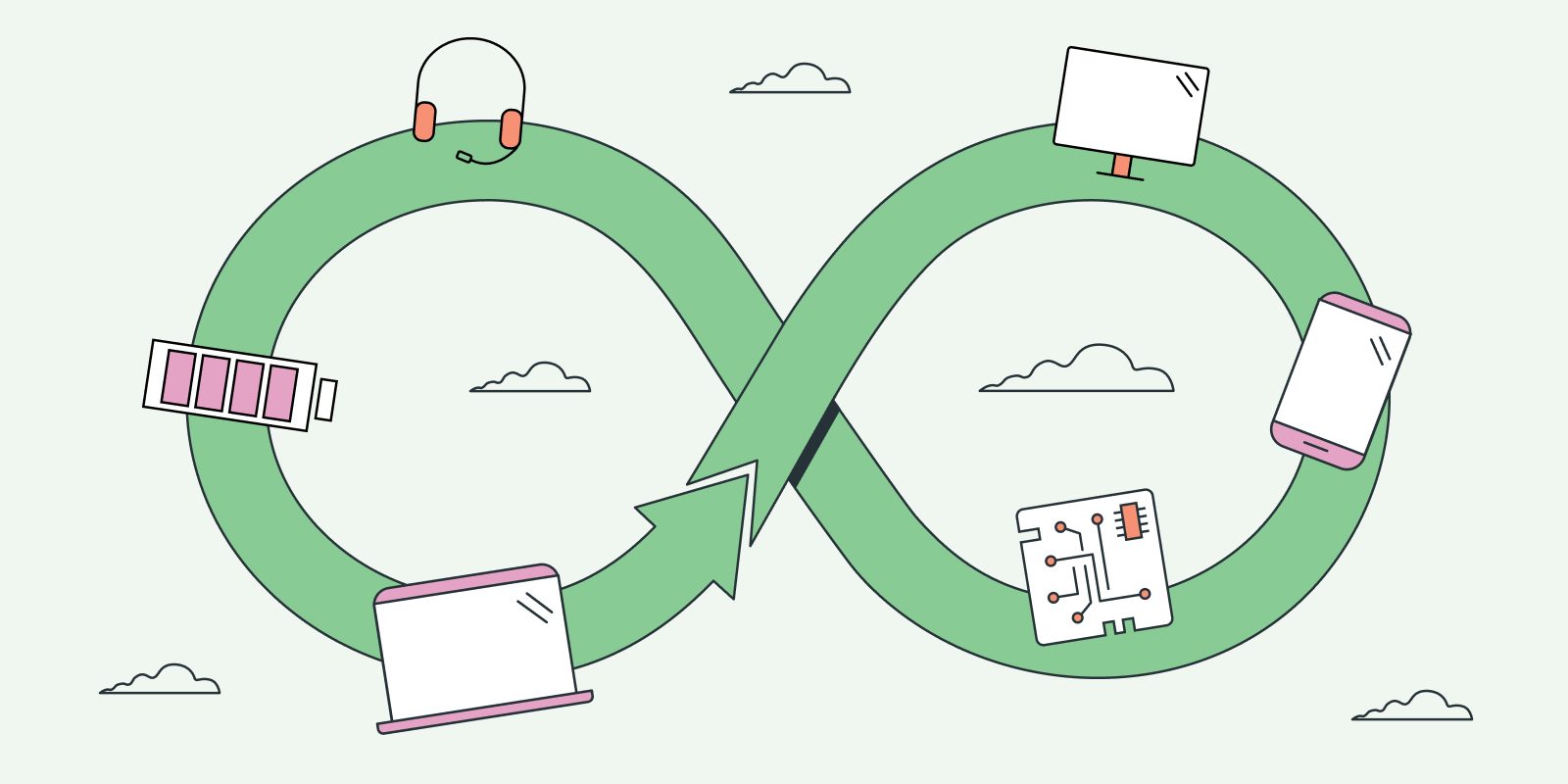We have a global increase in the standard of living and the consumption of products is escalating to record levels. Digital product passports are a proposed solution to support more sustainable production, circular business models, and well-informed purchasing decisions.
For electrical and electronic (EE) products specifically, we now consume more than 20 kg of products per person in the EU every year. These products include washing machines, vacuum cleaners, refrigerators, computers, TVs, and mobile phones. Unfortunately, these products are often only used for a couple of years before being discarded. And worse, some products are thrown away even though they still work and could be used by someone else.
The short lifespan of EE products contributes to e-waste being the fastest growing waste stream in the world with an annual growth rate of just over 4 percent. EE products are also very resource-intensive to manufacture, which makes them important to focus on in order to reduce future environmental impact.
On March 30, 2022, the European Commission proposed a package of legislative measures as part of the European Green Deal and the Circular Economy Action Plan (CEAP). The legislative package aims to make almost all physical goods in the EU, including EE products, more sustainable, circular, and energy-efficient throughout their life cycle.
Part of the proposed Ecodesign for Sustainable Product Regulation and one key measure in CEAP is introducing a Digital Product Passport (DPP). The ambition is to have laid the groundwork for a gradual introduction of product passports in at least three key product areas by 2024. These include textiles, construction, industrial and electric vehicle batteries, and at least one of the most important identified value chains in CEAP, such as consumer electronics, packaging, or food.
The purpose of a product passport is to collect data about a product and its supply chain and make this information available so that all stakeholders, including consumers, can gain a better understanding of the products they use and their impact. This increased availability and traceability of data intend to facilitate the transition to a circular economy.
The main areas in which product passports are intended to make a difference are:
- More sustainable production
Increasing material and energy efficiency, extending product life, and optimizing product use. - Circular business models
Enable companies to implement service and repair-based business models. - Well-informed purchasing decisions
Help consumers make more sustainable choices and monitor their impact. - Verify compliance with legal obligations
Administer an EU-wide registration of standards and certifications that a product meets.
You can influence the scope of product passports by getting involved in one of the initiatives where these are discussed. For example, there is currently a discussion within the project Trace4Value (Traceability For Sustainable Value Chains) on which products should be first with product passports, what data to include, and many other questions. Trace4Value has brought together stakeholders from several industries to address the challenges of the circular transition.
In the area of EE products, there is the KEEP initiative. Since 2018, their focus has been to develop a traceability system for EE products to promote and streamline sustainable production, reuse, and material recycling. On the project’s website, you can test a prototype of a product passport and the type of data that could be included.
We will probably see product passports becoming a reality in the near future. How they will work and the included data are currently being considered and can be influenced by affected stakeholders. Since product passports could offer considerable business benefits, there are many reasons for organizations to get involved early. One great way is to participate in one of the active research projects or initiatives mentioned above.

Andreas Nobell leads the development of TCO Certified. He is interested in traceability and finding solutions to the ever-growing e-waste problem.




